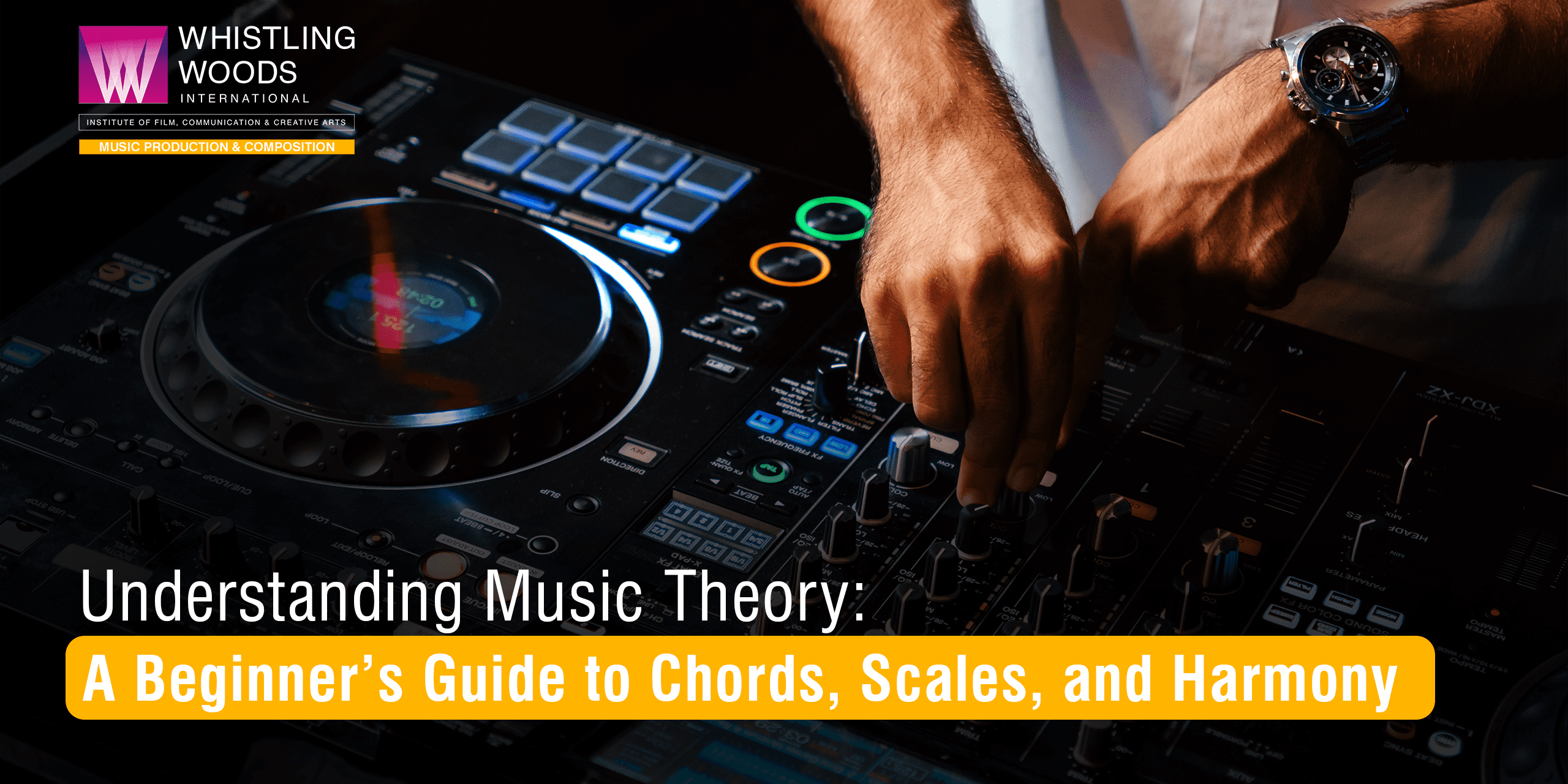If you are an aspiring musician who wants to build a career in the music industry, you need to learn music theory to better understand rhythms, melodies, and harmonies.
The music industry is a world of high competition. Learning the grammar and syntax of the music language can help any musician interpret, analyse, and create a musical masterpiece.
Many envision music theory as complicated sheet music and are overwhelmed by learning it as a beginner, but in reality, it is a tool that helps a musician understand and explain how music works.
So, if you are enthusiastic about learning the art of music, then here is a guide that can help you learn it from scratch:
Understanding Chords, Scales, and Harmony:
Music Theory is the study of grammar and index of the musical language, which has a certain set of principles, rules, and concepts that easily explain how rhythms, melodies, and harmony work in crafting, exploring and interpreting music.
Here are some of the basics of this music language:
Basics of Notation and Alphabet:
To enhance your music skills, you need to understand the basics of notations and the alphabet of music. Notations are marking symbols and signs that enable the musician to know how to play written music, which includes elements such as the musical staff, clef signs, and note values.
The musical alphabet is one of the most important topics taught across Music courses in India, as while learning these alphabets; you can interpret and read sheet music accurately. The alphabet, A, B, C, D, E, F, and G, represents the musical notes that repeat in a cyclical pattern. Sometimes, notes are not played or written in their natural states and can be altered with sharps (#) or flats (b).
Explore Scales, Key Signatures, and intervals:
Musical scales comprise a sequence of notes that are arranged in descending or ascending order, helpful in informing the base of harmony and melodies. It consists of seven notes following a specific pattern of half steps (H) or whole steps (W). These patterns are used for key signatures that are useful in indicating which note to sharpen or flatten throughout a music piece.
Intervals are quite helpful in balancing harmony and metric relationships in music, as they represent the distance between two pitches. They range from small to large intervals, such as minor seconds, eight whole steps, and beyond.
Learn About Chords, Rhythm, and Harmonies:
The most important part of this extensive subject is learning about chords and Harmonies, which is an integral part of a course in a Music college in India. Functional harmony is one of the most important concepts of music, and it focusses on exploring how the chords work together to create tension and movement in a musical piece. It is found in the form of chords and chord progression.
Building a chord on any note of the scale requires a set of different qualities, such as major, minor, augmented, or diminished qualities, that depend upon the overall structure. Some examples of chord progression include a Common Chord Progression II-V-I, Rock Progression I-IV-V, and more.
Rhythm is considered to be the foundation for the embedded message converted through the melody of a musical piece by expressing itself with a series of patterns of repetitive and regular sound. Rhythm is present in each element in a major piece.
Learning the basic concepts of music theory can help you reinforce the theoretical concepts in your music and develop a strong foundation for improvising, composing, and playing music. By practicing it regularly, you can identify the theoretical elements that improve your aural skills and build a thriving music career.
Must Read: 5 Important Elements of Music
Embark on a Journey of Musical Excellence with Whistling Woods International:
Build your career as a budding musician in the industry by learning from the seasoned experts at Whistling Woods International, a distinguished Music college in India.
Learn about the basic to in-depth concepts of Music theory, explore rhythmic mastery, and understand the art of composing and recording music and different genres of music, such as Bollywood, contemporary, western, classical, and more, with our range of comprehensive courses.
The BA in Music Production & Composition course offered by WWI is considered one of the most popular music courses in India, as it focusses on offering training under experts for crafting soothing melodies, understanding the concept of music, honing skills, and covering the full spectrum of music creation.
Master the craft of creating music masterpieces from industry Pros while getting hands-on experience and practical learning. Turn your passion for music and creativity into a lucrative career with exceptional guidance from industry professionals at Whistling Woods International! Enrol in our courses now!

